
- For Journalists
- News Releases
- Latest Releases
- Northwestern faculty available to discuss the 2022 midterm elections
Northwestern faculty available to discuss the 2022 midterm elections
Media Information
- Release Date: October 13, 2022
Media Contacts
Northwestern Media Relations
The 2022 midterm elections promise to be closely contested, with polls showing tight races in many states. Historically, the president’s party has often lost seats in the House of Representatives during midterms, but several factors are making this election cycle unusual, including high inflation and the Supreme Court’s decision last June to overturn Roe v. Wade.
Northwestern University political scientists, economists, legal scholars and other faculty are available to discuss the key issues, from the economy and reproductive rights to immigration and foreign policy. Below, faculty offer thoughts about some of the factors shaping midterm races in 2022. Contact information is provided for each faculty member; journalists can also reach out with inquiries to media@northwestern.edu.
Inflation and the economy
See experts
Martin Eichenbaum is the Charles Moskos Professor of Economics at Weinberg College of Arts and Sciences and co-director of the Center of International Macroeconomics. His research focuses on understanding aggregate economic fluctuations. He can be reached at eich@northwestern.edu.
Quote from Professor Eichenbaum
“The public is keenly aware of an ongoing, sustained high rate of inflation and the cost that it is inflicting on all Americans. The Federal Reserve needs to remain focused on reducing the inflation rate to its target level of two percent. The choice is not between low inflation and high growth. Low inflation is a necessary condition for sustained high growth rates of economic activity.”
Experts

Abortion rights
See experts
Andrew Koppelman is the John Paul Stevens Professor of Law at the Northwestern Pritzker School of Law. He is an expert on the Supreme Court and has written books about gay rights and religious liberty, health care reform and the U.S. Constitution, and other topics. He can be reached by contacting Max Witynski at max.witynski@northwestern.edu.
Quote from Professor Koppelman
“Many people don’t vote, but they will be motivated to do it if they feel that they have something personal at stake. After the Dobbs decision, Republicans are proposing to force women to have babies. Any girl or woman of childbearing age, or anyone who is related to one, is now threatened. Voters will turn out for reasons of self-defense.”
Joanna Grisinger is an associate professor of instruction and director of legal studies in the Weinberg College of Arts and Sciences at Northwestern, where she teaches undergraduate courses including “Law & Society;” “Legal and Constitutional History of the United States;” “Constitutional Law;” and “Gender, Sexuality, and the Law.” Her research focuses on the modern administrative state in 20th-century U.S. legal and political history. She can be reached directly at joanna.grisinger@northwestern.edu.
Kate Masur is the Board of Visitors Professor of History at Weinberg College of Arts and Sciences at Northwestern. Her research interests are U.S. history, the Civil War and Reconstruction, the anti-slavery movement, emancipation, race, politics and the state. Masur is author of “Until Justice Be Done: America’s First Civil Rights Movement, from the Revolution to Reconstruction” (W.W. Norton, 2021), a finalist for the 2022 Pulitzer Prize in history. She can be reached at kmasur@northwestern.edu.
Professor Masur can discuss historical comparison between the overturning of Roe v. Wade and antebellum slavery, and the differences and similarities between that time period and the current moment. Read her op-ed in the Washington Post about this topic.
Experts
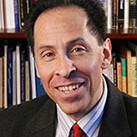
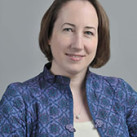
Associate Professor of Instruction | Director of Legal Studies

Board of Visitors Professor of History
Democrats’ record and campaign strategy
See experts
Alvin B. Tillery Jr. is a professor of political science and director of the Center for the Study of Diversity and Democracy. His research focuses on American political development, racial and ethnic politics and media and politics. He can be reached at alvin.tillery@northwestern.edu.
“The upcoming midterm elections will be decided by a razor-thin margin between the two parties. Like most pollsters, I predict that the Democrats will hold their majority in the Senate and expand it with pickups in Ohio, Pennsylvania and North Carolina. This result will be fueled by the Republicans’ disastrous strategic blunder in backing poor candidates in those states at the behest of Mr. Trump. I also think that the Democrats will overperform in these swing states because women and younger voters have been energized by the Supreme Court’s decision to overturn Roe v. Wade and open the door to state abortion bans.
“On the House side, gerrymandering gives the Republican Party an advantage to capture the chamber. Moreover, their natural advantage was amplified by the Democrats’ botched redistricting in New York and the Supreme Court’s willingness to allow a racist gerrymander that clearly violates the Voting Rights Act to stand in Alabama through this cycle. In short, the Democrats will need a perfect night — with everything breaking their way — in order to retain control of the House of Representatives. That is not likely, but it is possible. It will all come down to how many white women actually act on their outrage over abortion rights and vote for the Democrats; how many of the young people whom we have seen register this summer in high numbers actually vote; and how many African American and progressive white voters in urban areas are turned off by the Democrats’ bizarre ‘fund the police’ messaging through this cycle. It is simply mind-boggling that two years after those two reform-minded constituencies powered the Democrats to a Senate majority in Georgia that the Democrats have dampened the enthusiasm of those groups by messaging in precisely the opposite direction that supercharged their turnout. It just goes to show that the entire ecosystem of Democratic pollsters and consultants — which is still dominated by older white men who were in their prime during the Clinton era — fundamentally lacks an understanding of the new Democratic majority.”
Laurel Harbridge-Yong is an associate professor of political science and a faculty fellow in Northwestern’s Institute for Policy Research. Her research focuses on partisan conflict and the lack of bipartisan agreement in American politics. Her most recent book is “Rejecting Compromise: Legislators’ Fear of Primary Voters.” She can be reached at l-harbridge@northwestern.edu.
Quote from Professor Harbridge-Yong
“As we approach the midterm elections, Democrats in Congress and the Biden administration can point to several key policy victories. Some of these entailed bipartisan coalitions while others were passed with narrow Democratic majorities. But nearly all fell short of what the progressive wing of the party sought. Tensions between the Democrats’ dual goals of creating a record of success and highlighting what the party stands for, combined with polarization and party animosity that reduced Republicans willingness to negotiate, limited interest in greater efforts at bipartisanship from both within the Democratic Party and from Republicans.”
Experts
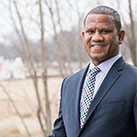
Professor of political science and African American studies
Director, Center for the Study of Diversity and Democracy
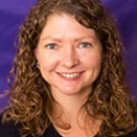
Professor and Associate Chair, Department of Political Science
Faculty Fellow and Associate Director, Institute for Policy Research
Latino/a voter behavior
See experts
Jaime Dominguez is an associate professor in the department of political science and the Latino/a studies program. His research interests include race and ethnicity, coalition politics and urban and minority politics. He can be reached at j-dominguez@northwestern.edu.
Quote from Professor Dominguez
“It’s clear that Latino/a voters in November will be a critical and consequential voting bloc in these elections and in the near future. Like most voters, it’s the bread-and-butter issues that determine who they are going to vote for in elections. In order, the issues that matter most in November will be the economy, gun control, health care, crime and violence. More recently, abortion is showing up as a motivating factor to participate in November.
“Here is my analysis on the Latino/a vote and new trends. First, Latino/a voters have never seemed more important than in the coming midterms given it’s the first real referendum on the Biden era of government. Second, there has been tremendous growth among young voters. For example, young voters (under 34 years of age) now account for 20% or more of registered voters in more than a dozen competitive races, including two crucial Senate races in Arizona and Nevada (ones that could determine control of Congress). This is a new trend that will only continue to grow. In states like Colorado, Georgia, North Carolina, Nevada and Virginia, young Latino/a voters (18-29) in the 2020 general election made up the largest bloc of Latino/a voters in those states. For example, in the 18-29 voting cohort, Arizona has (27.5%), Colorado (26.2%), Georgia (31.4%), North Carolina (34.2%), Nevada (29.8%) and Virginia (24.3%). So, investing in massive GOTV (Get Out the Vote) efforts will be critical in getting these voters to the polls.”
Geraldo Cadava is a historian of the U.S. and Latin America and the director of Latina/o Studies program at Northwestern. His books include “The Hispanic Republican: The Shaping of An American Political Identity, from Nixon to Trump” (Ecco/Harper Collins 2020). He recently launched the weekly newsletter “Latinos in Depth.” He can be reached at g-cadava@northwestern.edu or by calling Stephanie Kulke at 847-491-4819.
Quote from Professor Cadava
“I expect Latinos will make a big difference in key races in South Texas, Arizona, Georgia, Pennsylvania, Nevada and Wisconsin. They could determine who controls the Senate. Depending on the place, different issues resonate—inflation, crime and policing, education and border security.
“I think the thing we’re all waiting to see is how and whether the midterms answer the question that has lingered since 2020: Was the Latino shift rightward a sign of a lasting trend—a political realignment, even—or an anomaly based on Trump and the pandemic?
“My caution would be that we probably won’t learn anything conclusive. I expect there will be mixed results that will leave us once again looking to the next election for answers. I actually don’t think that’s a bad thing, since it will leave us curious and wanting to know more about Latinos—never a bad thing!”
Experts
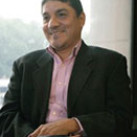
Associate Professor of Instruction, Political Science

Professor of History, Wender-Lewis Teaching and Research Professor
Conspiracy theories, legal ethics and former President Trump
See experts
Cynthia Wang is the executive director of the Dispute Resolution and Research Center (DRRC) and a clinical professor of management and organizations at Northwestern University’s Kellogg School of Management. She is an expert on negotiations, cultural and social diversity, ethical decision-making and reducing social bias. She can be reached by contacting Sarah Clarke at sarah.clarke1@kellogg.northwestern.edu.
Quote from Professor Wang
“There is reason to worry that conspiracy theories may impact the upcoming elections. For example, some of the people who espoused the conspiracy theory that substantial voter fraud lead to a stolen 2020 presidential election are now running for the very political positions that supervise upcoming elections (see here for article). This would only exacerbate a growing opinion by Americans that our democracy is in jeopardy. The times leading up to elections, which are often full of uncertainty, also make this type of conspiratorial rhetoric particularly appealing as a way to make people feel like they understand what is going on. We need to be all the more careful about the ramifications of listening to this rhetoric.”
Juliet Sorensen is a clinical professor of law at Northwestern’s Pritzker School of Law. She is an expert on legal ethics, corruption and human rights and can discuss legal questions relating to the FBI’s seizure of documents from former president Trump’s Florida home and ongoing investigations by the Department of Justice against the former president. She can be reached by contacting Max Witynski at max.witynski@northwestern.edu.
Experts

Immigration reform and “stunts” by Republican governors
See experts
Jaime Dominguez is an associate professor in the department of political science and the Latino/a studies program. His research interests include race and ethnicity, coalition politics and urban and minority politics. He can be reached at j-dominguez@northwestern.edu.
Quote from Professor Dominguez
“The political stunts by governors Abbott and DeSantis are an attempt to get ahead on the framing of immigration reform. They want to project strength with the Republican base by sending a message to voters that Democrats have zero solutions to address the crisis at the southern border. The irony is that with Ian’s destruction, those same migrants could have been helping with the clean-up efforts going on in Florida.”
Experts

Associate Professor of Instruction, Political Science
Polarization and voter behavior
See experts
Jacob Teeny is an assistant professor of marketing at the Kellogg School of Management, specializing in the study of consumer behavior, including the inferential processes that shape the way people perceive themselves and others. He has new research on engaging with those who have different political views, and can be contacted by emailing sarah.clarke1@kellogg.northwestern.edu.
Quote from Professor Teeny
“One of the best ways to influence voters is to get your own voters to speak on your behalf (i.e., political word of mouth); however, voters are very reluctant to engage with people other than those with whom they already agree. The strongest predictor of getting people to engage with political dissidents is to convince them that this other person is open-minded. That is, even if they think the target is extreme on the topic or difficult to change, so long as they believe the target will be open to genuinely listening, people are likely to engage with them.
“When others hold attitudes counter to their own, people automatically assume that the other person's attitude is based on emotion (vs. reason). In fact, even if you give people the exact same arguments, both Republicans and Democrats rate those arguments as emotionally based when they’re from the other side but as rationally based when they’re from their own. The biggest predictor of inferring low open-mindedness in someone is when people believe this other person’s opinion on this topic is emotionally (vs. rationally) based. So, if you want to motivate people to actually try to persuade political dissidents, getting them to briefly think about the rational reasons for the other side’s opinion makes the other side seem more open-minded, motivating engagement.”
Experts
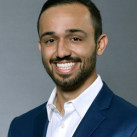
Gubernatorial races
See experts
James Druckman is the Payson S. Wild Professor of Political Science in the Weinberg College of Arts and Sciences and fellow and associate director of Northwestern’s Institute for Policy Research. His research focuses on political preference formation, communication and experimental methods. Druckman is a co-researcher of the Strengthening Democracy Project and The COVID States Project. He can be reached at druckman@northwestern.edu.
Quote from Professor Druckman
“The differential gubernatorial approval, with Democrats expressing more enthusiasm for their party’s governors than Republicans do for their party’s, could be notably consequential if it influences turnout. Turnout surely will play the crucial role in some of these close races.”
Experts

Russia’s war against Ukraine and rising energy costs
See experts
Stephen Nelson is an associate professor of political science at Northwestern focusing on comparative politics, international relations and international law. His research includes the politics that shape the International Monetary Fund’s (IMF) lending policies, the political dynamics of developing and emerging market countries’ decisions to open their economies to international capital flows, and the international organization of sovereign debt markets. He can be reached at stephen-nelson@northwestern.edu.
Quote from Professor Nelson
“American voters have, to this point, reported a good deal of support for the Ukrainian government and military in its efforts to resist Russia’s aggression. In August, 60% of respondents suggested that they want their government to support Ukraine over the long haul, even if that support comes at the cost of higher energy prices. That's good news for the Biden administration and the candidates from Biden's party entering the midterm electoral cycle: co-partisans and independents are broadly supportive of the administration’s strategy of support for Ukraine.
“But that doesn’t mean that voters will be inclined to downplay higher prices when they enter voting booths in November. Economic turbulence is rarely helpful for the electoral fortunes of politicians from the incumbent party. The causes of high energy and consumer prices are varied, however, and voters — facing an overload of information — are much more likely to respond to the effects of the price increases on their purchasing power (whatever the cause) than they are to make the connection between the administration’s foreign policy agenda and the cost of energy.”
Ian Kelly is the ambassador in residence at Northwestern. Previously, he was U.S. ambassador to Georgia, ambassador to the Organization for Security and Cooperation in Europe, State Department spokesperson, and director of the Office of Russian Affairs in Washington, D.C. Ambassador Kelly can discuss the Biden administration’s foreign policy in Eastern Europe, but not as it pertains to voter behavior. He can be reached by emailing max.witynski@northwestern.edu.
Experts

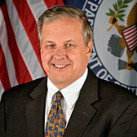
Ambassador in Residence, International Studies & Slavic Languages and Literature

Associate Professor of Political Science